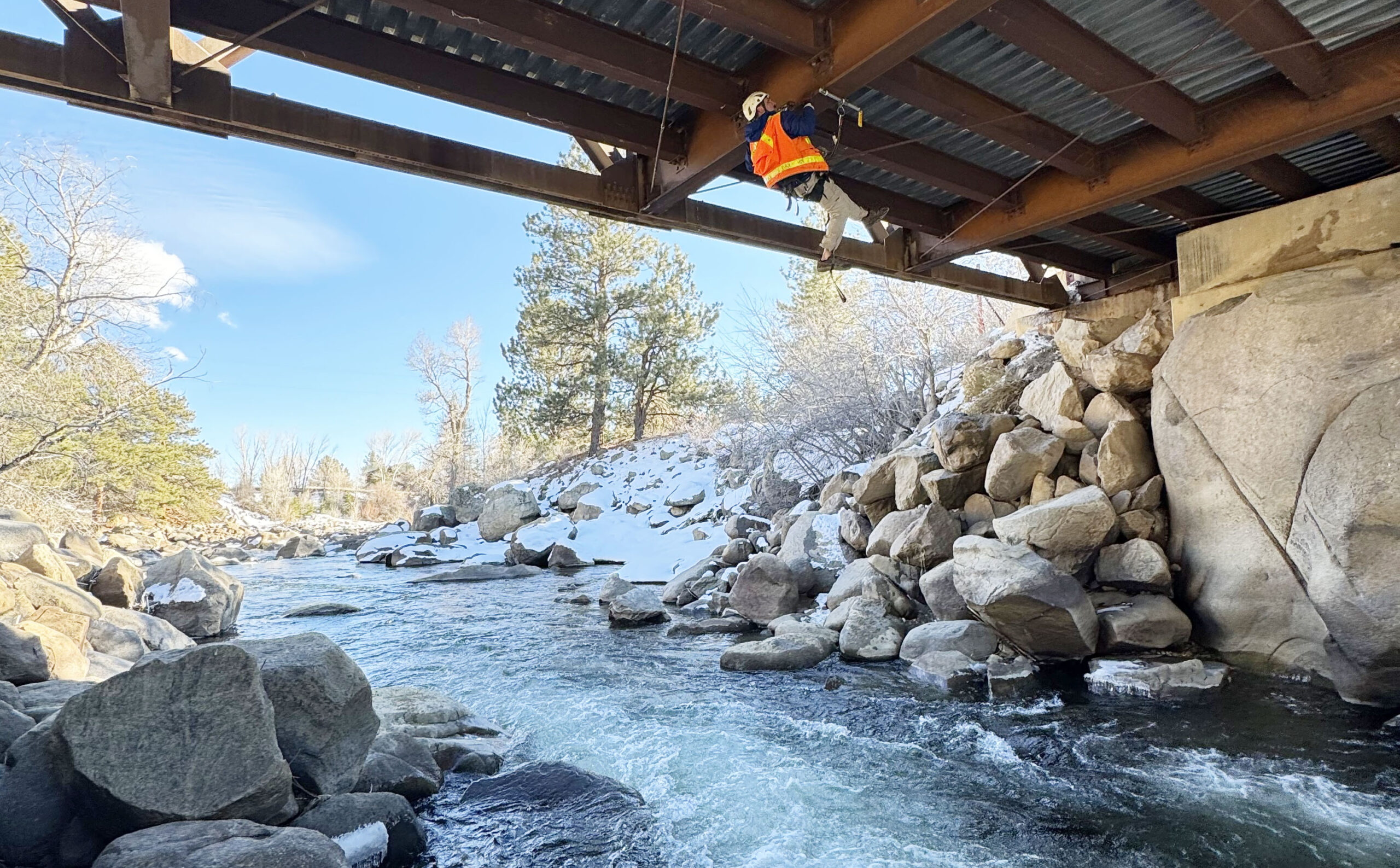
The colorful state of Colorado has some of the most unique and sought after views in the United States. Sights like stunning reservoirs, tunnels throughout the Rocky Mountain region, views off of Interstate 70, and bridges across the state give inspectors and engineers the opportunity to do field work in some of the most beautiful landscapes across the nation. Colorado’s terrain offers a unique set of challenges and rewards, and for those in the bridge inspection industry, it is not just a jobsite, but also an adventure.
Civil and structural engineers, as well as inspectors in Colorado can expect a wide variety of jobs, some of which may include implementing SCUBA and Surface Supplied Air (SSA) diving techniques in many diverse underwater inspection settings including swift water, low visibility, and deep diving. Structural bridge components exist below the waterline, giving bridge inspectors a chance to jump into experiences that aren’t offered in many other engineering sectors.
SCUBA, or Self-Contained Underwater Breathing Apparatus, involves using a portable tank of compressed air to breathe underwater. This technique allows inspectors to explore submerged structural components of bridges, such as foundations or piers, which are inaccessible from the surface. Surface Supplied Air (SSA) diving, on the other hand, provides divers with a continuous air supply from the surface via hoses and umbilicals. This method is often used for deeper dives or in situations where prolonged underwater work is required, providing better safety and flexibility for inspections at significant depths.
Both SCUBA and SSA diving techniques are essential tools for bridge inspectors and engineers, enabling them to explore the condition of critical infrastructure elements that lie beneath the waterline and would otherwise be inaccessible. A recent job performed by Engineering Operations included SCUBA and SSA diving with altitude adjusted depths of 200-ft. and operations above 7500-ft. in elevation. During this project, advanced diving techniques were essential in completing the inspection and making recommendations for repair.
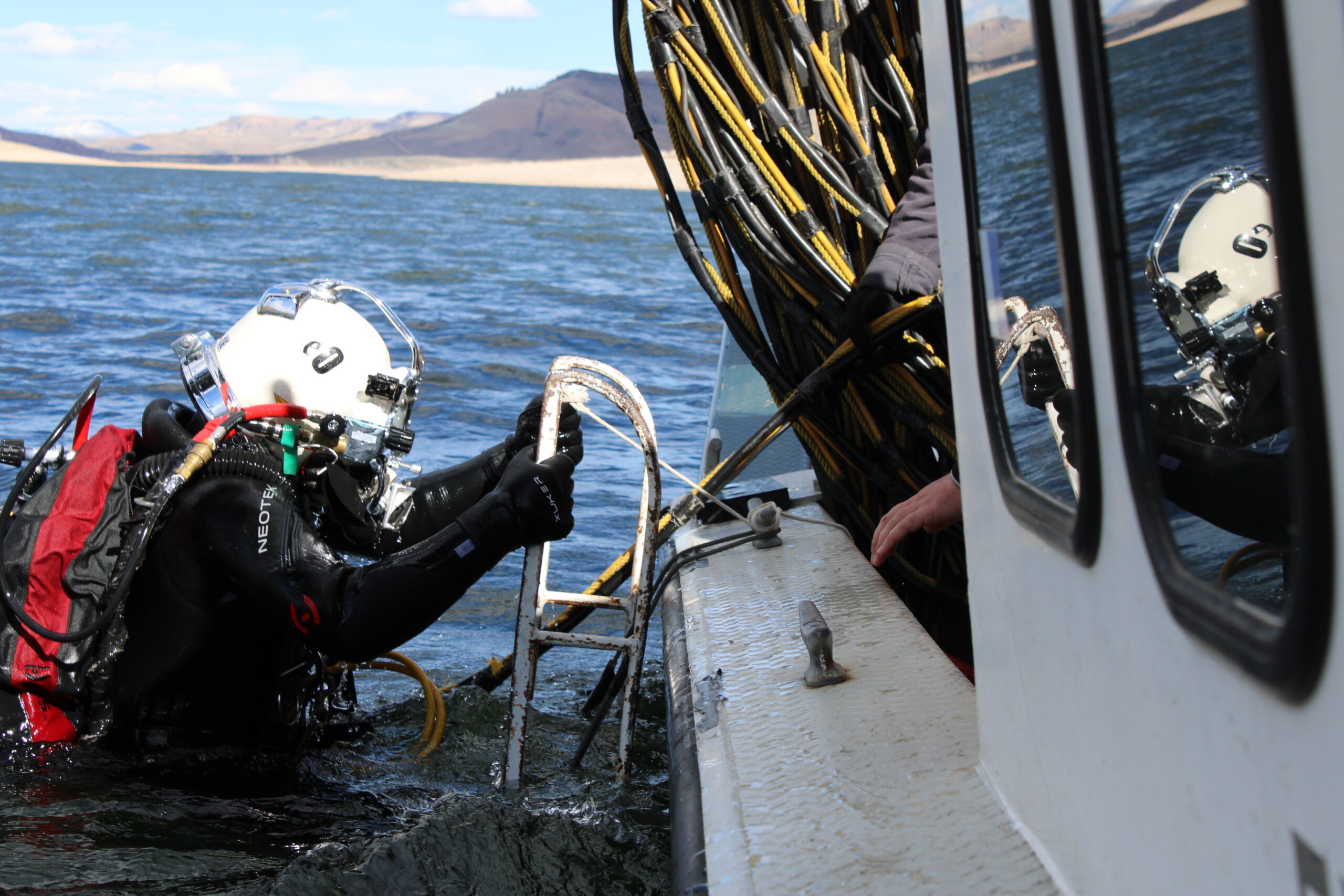
Conditions in rivers and bodies of water throughout the state also vary depending on several factors, including season, snowmelt, and elevation. Colorado’s rivers often begin in high-altitude areas where the gradient is steep. This steepness accelerates water flow, especially in the upper reaches of rivers such as the Arkansas, Colorado, and Poudre. Navigating these diverse terrains require inspectors and engineers to have a range of safety certifications and trainings to ensure they have knowledge and capability to handle any unforeseen circumstance.
Other projects that take place above water may require rope access techniques, allowing engineers and inspectors to perform their inspections at high elevations or beneath large structures such as bridges. This special access technique comes in handy in Colorado, especially in situations where bridges cross bodies of water or canyons, where bucket trucks cannot be used from below.
Using SPRAT rope access techniques for bridge inspections is a game-changer. Highly skilled technicians equipped with advanced climbing gear utilize these skills while gracefully navigating the intricate structures of a bridge. Instead of relying on bulky scaffolding or aerial lifts, these experts use ropes to reach even the most challenging inspection spots. Not only does this method provide a safer and more efficient way to conduct thorough inspections, but it also ensures that no potential issue goes unnoticed. By following stringent safety protocols and rope management practices, SPRAT-certified pros can deliver detailed assessments that keep our bridges safe and sound, all while complying with NBIS (National Bridge Inspection Standards).
Rope access techniques are used across the world and allow new possibilities for trade workers, engineers, and a variety of other lines of work. Beyond rope access techniques being efficient and trusted within the industry, they offer a thrilling change of pace to day-to-day work in addition to offering satisfaction to climbers who help move each project along towards completion.
In the bridge inspection industry, stepping outside the confines of the office isn’t just encouraged; it’s essential.
The variety in jobsites adds an extra layer of excitement to the day-to-day experience of engineering while also offering a range of technical challenges that lend themselves to unparalleled professional experiences and skill development.
Both engineers and inspectors undergo extensive training to master special access inspection methods, equipping them to tackle the unique challenges posed by bridge structures. By integrating these advanced techniques, inspectors can thoroughly evaluate both above and below waterline structures while adhering to stringent safety protocols, as well as ensuring the integrity and longevity of bridges.
The bridge inspection industry in Colorado offers not only a professional challenge but also an adventure for many. From the depths of underwater inspections to the heights reached through rope access techniques, engineers and inspectors navigate a diverse terrain that demands both technical expertise and a spirit of exploration. If you’re looking for a career path that takes you outdoors, bridge inspection might be the choice for you.
Here at Engineering Operations (eO), our inspection teams have worked on some of the most captivating bridges across the country, including 31 states and multiple projects overseas. With our headquarters in Littleton, CO, many of our projects are close to home in the beautiful Mountain West region. Learn more about job opportunities in Colorado, Florida, Louisiana, Oklahoma, and Montana through the eO careers page. To apply for a position at eO, email your resume to hr@eopsco.com with the job title you’re applying for in the subject line.
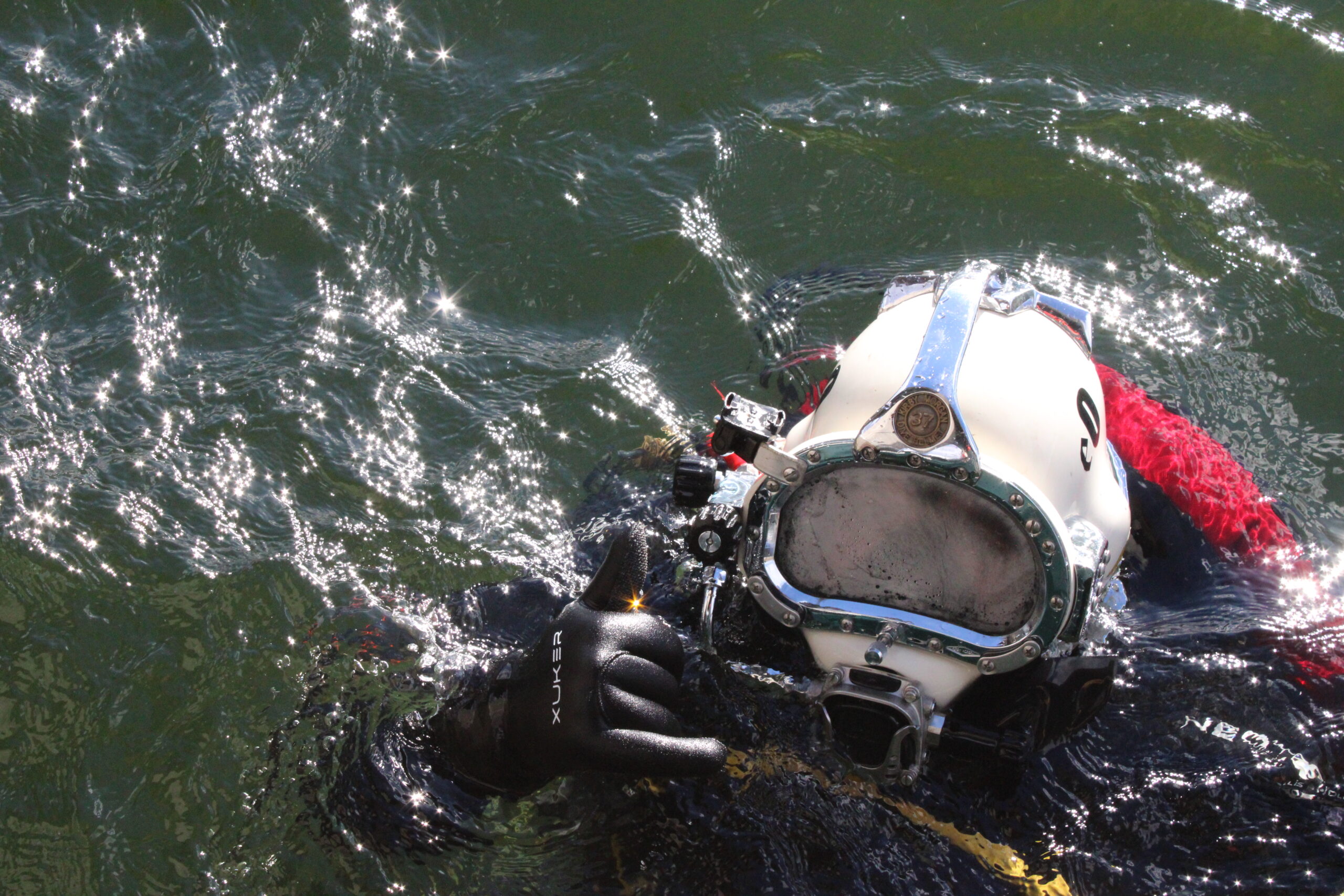
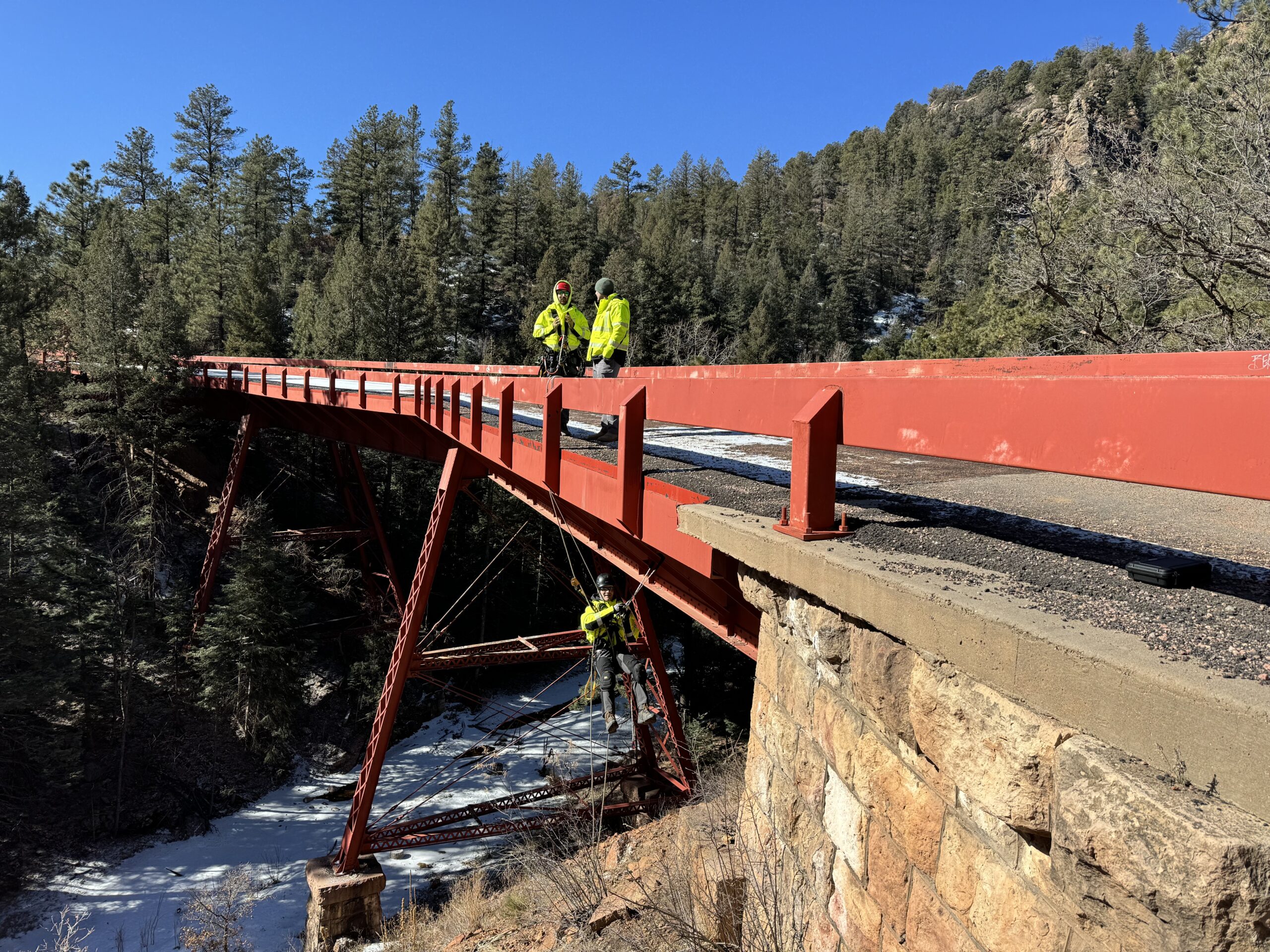
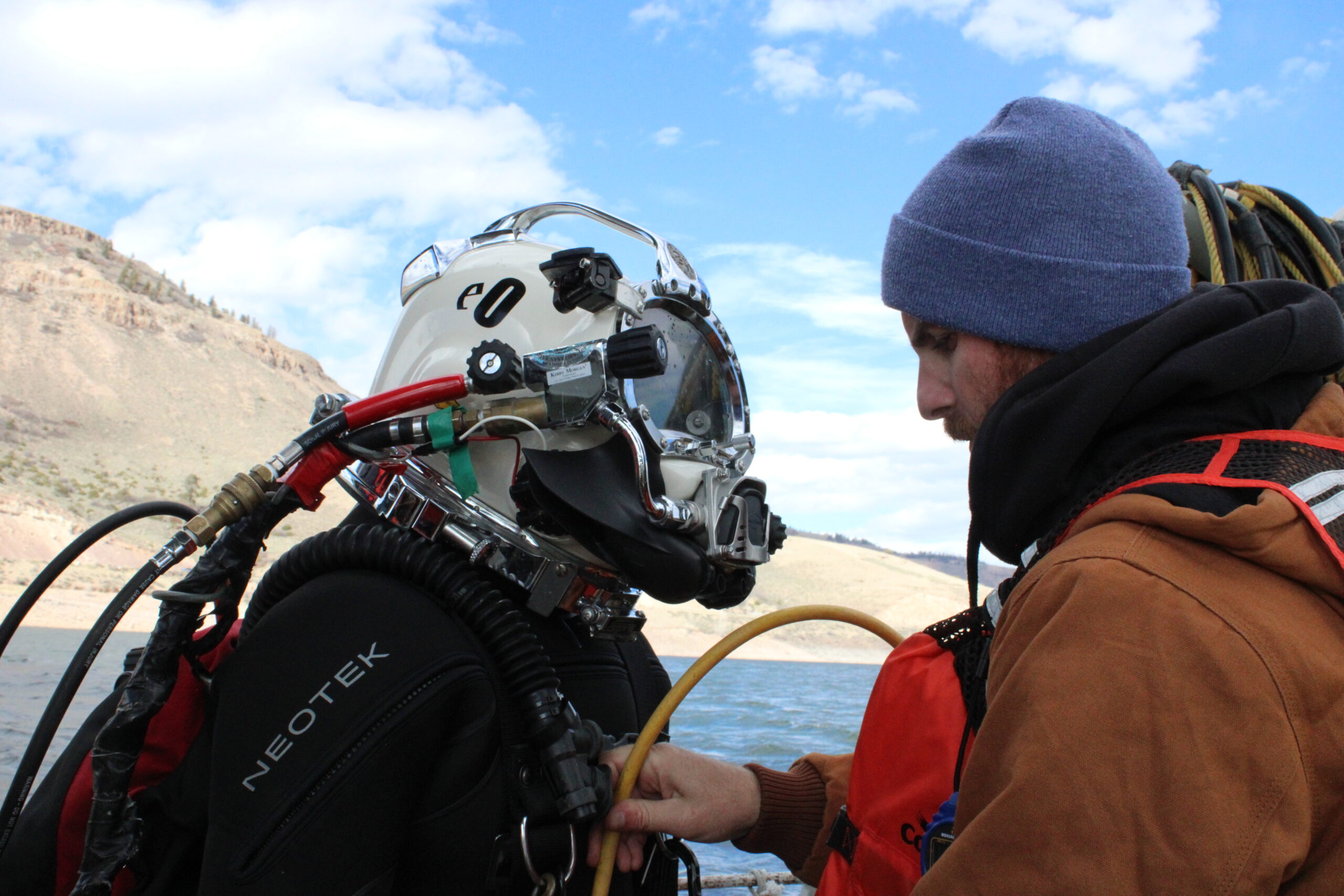
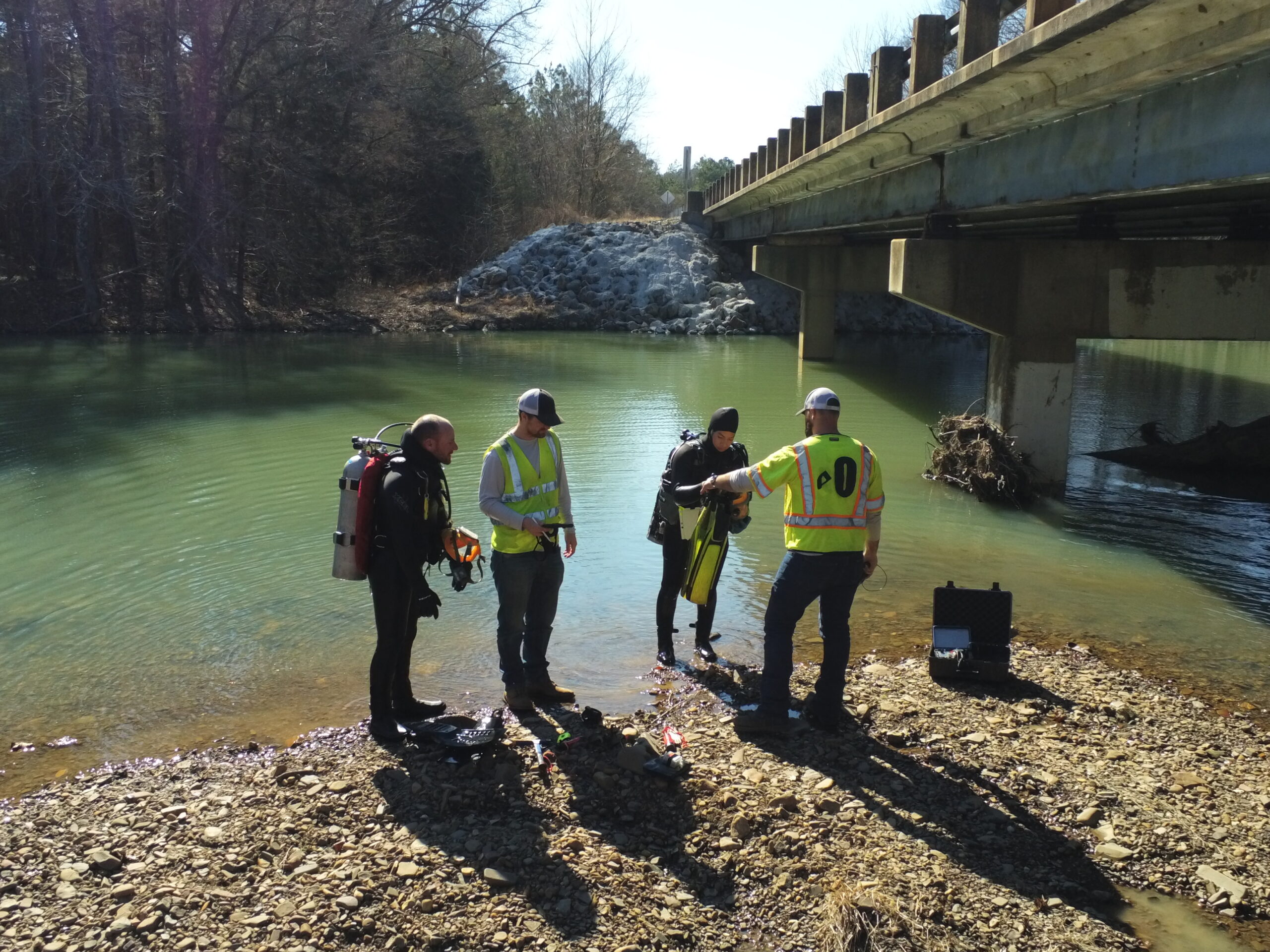
Join Our Team!
eO is looking for hard-working, passionate individuals to join our growing team. See our careers page to apply for any open positions.
